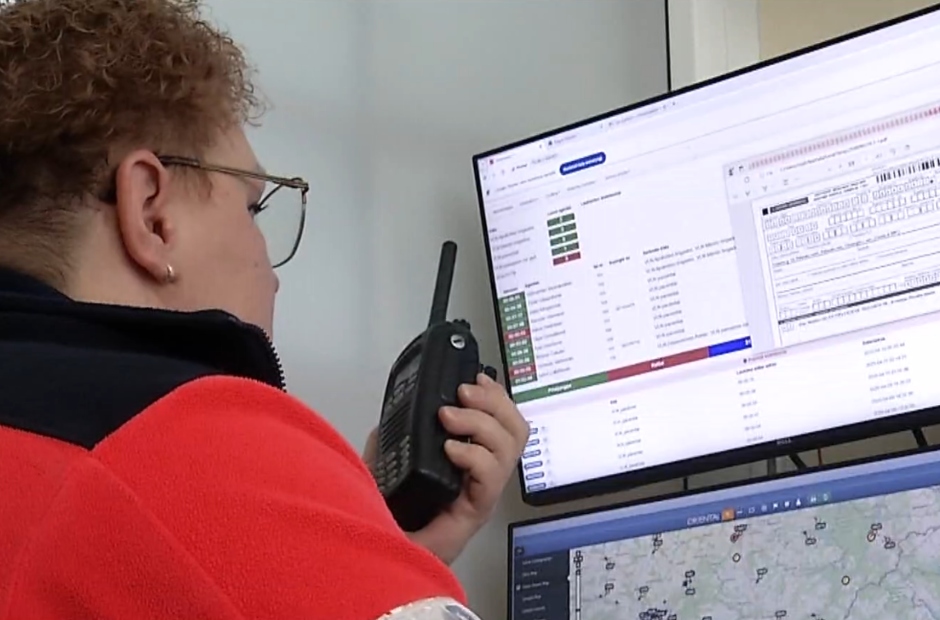Scammers use even on behalf of the minister: residents lose money

Regardless of the responsibilities, anyone can get into the trap of scam. This time the wicked took advantage of the Minister of Health. « Ministers, members of the Government Cabinet are suffering a greater threat to various cyber attacks. And here such a small, I would say, » said Marija Jakubauskienė.
The questionnaire was created in the title – a message was sent on behalf of the minister about the alleged health partnership grant from the US Embassy in Vilnius, the possibility of 15,000. and asked for a pre -fee of € 500.
« We really do not know how widely we went, we saw in the public sphere, reacted, » commented Skirmantas Kruunkaitis, Advisor to the Minister of Health.
After reacting, the questionnaire was removed. « It was extremely effective, in 10 to 15 minutes, the problem was solved in cooperation with the National Crisis Management Center, » the minister said. « No specific damage has been done to what is done, it is a reputation, » the minister’s adviser added.
L. April / Photo by BNS
This creation of questionnaires, pretending to be another person, is quite common. In such cases, it is advisable to contact the platform itself – the more reports, the more likely it is that the profile will be blocked. However, an ordinary citizen is unlikely to do so expeditiously. « It may take a few days, may and may never fail. It may be the other way around that the questionnaire that has been forged will become real and reports that your true profile is fake, such a case may happen, » said Tom Stamulis, Surf Shark.
The scammers try to pull the money in a variety of ways – and they succeed. The amount of recent days is almost a third of a million. « Last week alone, it is safe to say that scam people have attracted over € 300,000 from people, » said Revita Janavičiūtė, a spokeswoman for the Police Department.
People are left without a penny, and just the question of whose turn tomorrow. A memorandum signed in the Presidential Palace in March, which unites the presidential initiative to reduce electronic fraud in the state. However, the police say there are no longer a day to avoid victims: « Larger or smaller amounts are drained every day. »
There are plenty of calls, which are introduced by telecommunications, police or bank staff, according to officials, usually calls from calling centers specifically designed for such crimes. The investigations are complex because the victims do not turn to the police immediately. « You notice that you have lost money, only a few days later, and since international criminal organizations are most common, it is really difficult to investigate such investigations, as money is usually already left from Lithuania’s accounts, » said Janavičiūtė.
« There may be QR codes when scanned and leading to some harmful link, » said Rokas Jonikas, Director of the Cyber Security Center (NKSC) Cyber Security Center (NKSC).
Full LNK Report – In Video:
Such codes can be available anywhere – stuck on the pole. If you are confronted with scammers but have not suffered any damage, you can report websites, calls and messages to the NKSC.
« Compared to last year, in April, the NKSC has recorded about 2.5 times more, » said Jonikas.
NKSC blocks hooks. « Imagine the scammers send an endless number of those SMS, still everything happens in an automated manner, one resident was mistaken, responsible, we informed us and we immediately blocked that link. Then the other residents see the message that this site is blocked. – said a NKSC spokesman.
Still, what do IT security experts think, does institutions make enough effort to protect people?
« If few people know, no. That information is, we hear about the government’s certain initiatives, the dissemination of fraud is implemented, but if people do not reach, then somewhere in the chain there is a lack of an element to know how we have to do, how those scams behave and how to protect them, » commented Stamulis.
How to be safer can also be found on the NKSC website.








